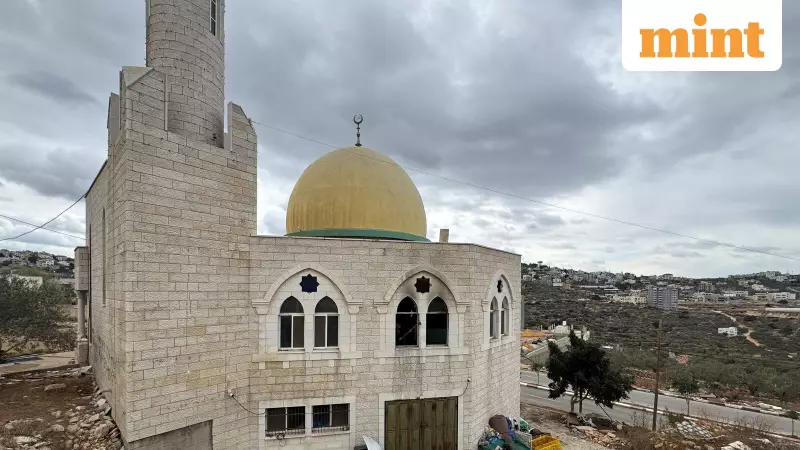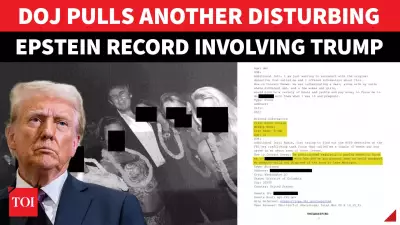
West Bank Tensions Explode as Settler Violence Intensifies
Violence in the occupied West Bank reached alarming new levels this week as Israeli settlers launched multiple attacks, including the burning of a mosque and assaults on both Palestinians and Israeli security forces. The escalating situation has drawn rare condemnations from Israeli authorities and expressions of concern from the United States government.
Mosque Attack and Hate Graffiti
In the early hours of Thursday, November 14, 2025, Israeli settlers attacked and set fire to a mosque in the small Palestinian town of Deir Istiya. The Palestinian religious affairs ministry documented the aftermath through social media, sharing photographs that showed significant damage to the prayer hall. Windows appeared blown out and ash covered portions of the floor, indicating the severity of the fire.
The exterior of the religious building was defaced with hateful messages spray-painted in Hebrew, including threats of revenge and a specific warning directed at Major General Avi Bluth, who heads the Israeli military command overseeing the West Bank. The graffiti explicitly stated: "We are not afraid of Avi Bluth", challenging the military authority's attempts to control the violence.
Earlier Incident Near Nablus
This mosque attack followed another serious incident that occurred on Tuesday, when a mob of dozens of masked Israeli settlers assaulted Palestinians near the city of Nablus. The attackers set property ablaze before fleeing to an industrial zone, where they subsequently attacked Israeli soldiers operating in the area.
Israeli police confirmed that four suspects were arrested in connection with Tuesday's violence. The incident prompted unusual public rebukes from both Israeli military leaders and the head of the main settler association, the Yesha Council.
Military and International Response
Israeli military chief of staff Lt. Gen. Eyal Zamir issued a strong condemnation on Wednesday, describing attacks by Israeli citizens against Palestinians and Israelis as "a red line that disrupts the mission of his forces." He emphasized determination to stop this phenomenon and ensure justice is served.
Major General Avi Bluth characterized the perpetrators as "anarchist fringe youth" and described their actions as unacceptable and extremely serious. He clarified that the directive to his troops is clear: "not stand idly by, and do everything in your power to prevent any act of nationalist crime."
The United Nations has documented an alarming pattern of increasing settler violence. According to the UN's humanitarian office OCHA, more than 1,400 settler attacks resulting in casualties or property damage have been recorded this year alone. The violence typically escalates during October, coinciding with the olive harvest season that has become a flashpoint in the conflict.
Last week, OCHA reported 264 attacks in October, with most directly linked to harvest disruptions. This represents a continuation of a nearly decade-long trend of rising settler violence annually.
Political Context and Settler Perspectives
The West Bank remains home to approximately 3 million Palestinians and about 500,000 Israeli settlers, with much of the international community considering the settlements unlawful. Settler representatives argue that the recent violence is perpetrated by a small group of extremist youth who don't represent their broader movement, which aims to increase Jewish presence in the West Bank and ultimately bring it under Israeli sovereignty.
However, an increasingly vocal far-right contingent in the West Bank has criticized authorities when they take action against Israelis, sometimes warning of retaliation. This creates a complex security challenge for Israeli forces operating in the territory.
US Position and Regional Implications
US Secretary of State Marco Rubio addressed the violence while attending a Group of Seven meeting in Canada, expressing concern but downplaying potential impacts on Gaza peace efforts. "Certainly there's some concern about events in the West Bank spilling over and creating an effect that could undermine what we're doing in Gaza," Rubio told reporters.
He added that while the US doesn't expect this outcome, "We'll do everything we can to make sure it doesn't happen." This statement reflects Washington's delicate balancing act in addressing violence while maintaining diplomatic momentum in the region.
The consecutive incidents and strong responses from typically reserved military officials indicate the severity of the current crisis. As settler violence reaches record levels according to UN data, the situation presents growing challenges for both Israeli security forces and international diplomats seeking stability in the region.





